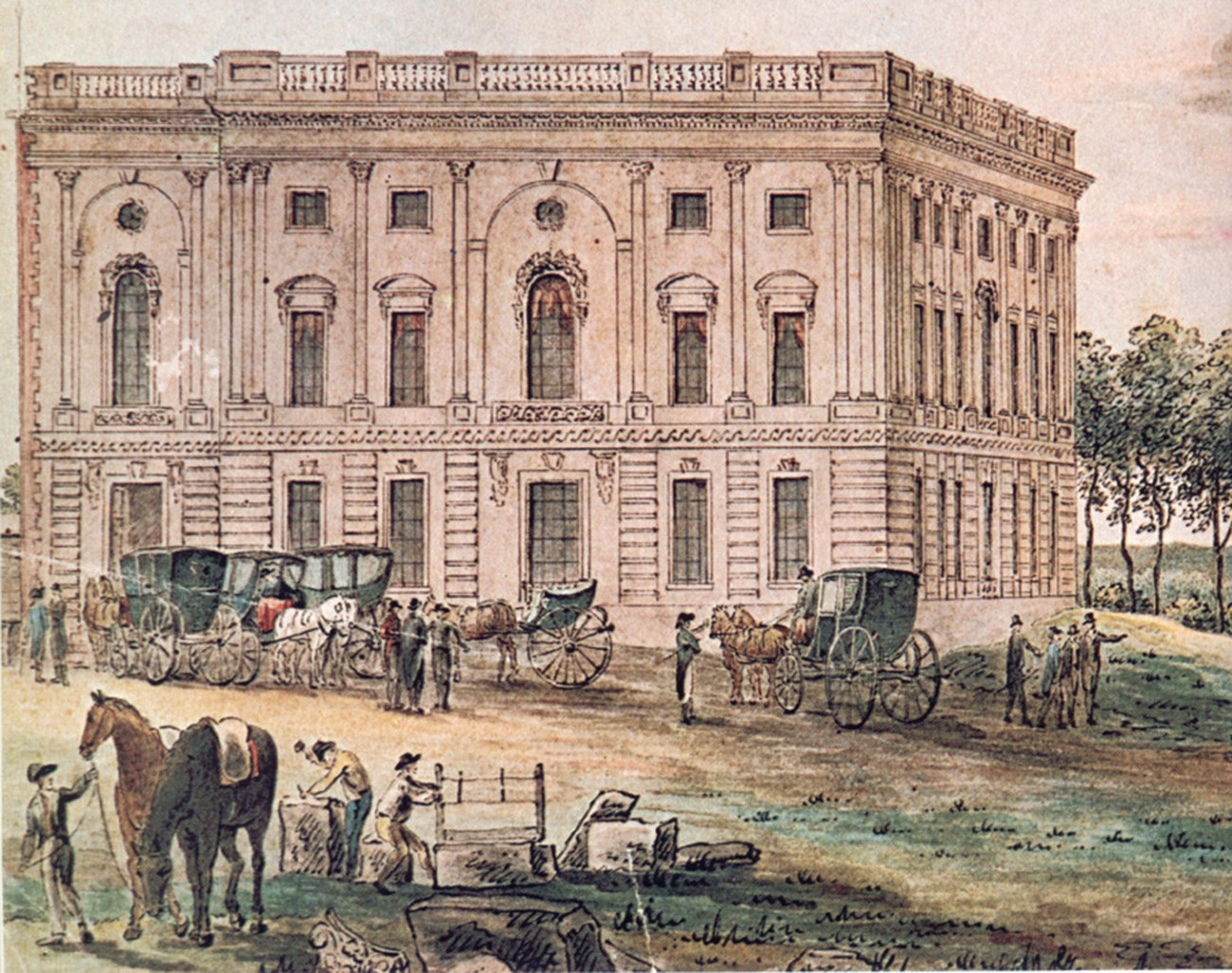Last updated: December 16, 2021
Article
The Inauguration of Thomas Jefferson

Library of Congress
In 1800, Thomas Jefferson was elected third president of the United States in one of the most bizarre and cantankerous elections on record. Thomas Jefferson and Aaron Burr ran together on a Democartic-Republican Party ticket. Sitting President John Adams led the opposing Federalist Party ticket along with Charles Pinckney. Candidates did not campaign directly in those days, but nevertheless things got ugly right away.
There were accusations the election of John Adams would mean a return to monarchy, or that Thomas Jefferson hated the Constitution. Some claimed Jefferson was dead and that a vote for him was a wasted vote. None of those things, of course, was true.
Some opponents attacked one of Jefferson’s proudest achievements, the Virginia Statute on Religious Freedom which supported the separation of church and state. Federalist clergy announced from the pulpit that Jefferson would not only destroy Christianity, but that his fortune was obtained through fraud and the robbery of 10,000 pounds from a widow and orphaned children entrusted to him.
Before passage of the 12th Amendment of the US Constitituion in 1804, the candidate receiving the most Electoral votes would be president and the runner up vice president. In the election of 1800, the two Democratic-Republicans clearly won the election, but Jefferson and his running mate Aaron Burr both had 73 Electoral votes. That tie set the stage for constitutionally-mandated contingent elections pitting the running mates against each other. Each state had a single vote, and after 34 rounds of voting, neither Jefferson nor Burr could break the tie. Ultimately, Federalist leader Alexander Hamilton lobbied against Burr, helping to sway enough votes for Jefferson to win. The political attacks and personal insults escalated to the point that Vice President Burr later killed Hamilton in a duel.
Jefferson recognized how factions were tearing the country apart. In his inaugural address, he declared, "Every difference of opinion is not a difference of principle. We have called by different names, brethren of the same principles. We are all Republicans. We are all Federalists.” While speaking those words of reconciliation, Jefferson also alluded to some of the accusations against him, "Let us reflect that having banished from our land that religious intolerance under which mankind so long bled and suffered, we have yet gained little, if we countenance a political intolerance as despotic, as wicked, and capable of as bitter and bloody persecutions.”
Jefferson kept his inauguration simple. It was the first inauguration held at the Capitol in the new seat of government, Washington, DC. Wanting to get away from pomp and circumstance associated with aristocracy, he simply walked the few blocks from his boarding house to the Senate, where he was sworn in by Justice John Marshall. When it was over, he simply walked back. Returning to the boarding house late for dinner, Jefferson took one of the only remaining seats at the far end of the table. Given the occasion, someone offered him a better seat near the fireplace. Staying true to his egalitarian platform, Jefferson refused.
